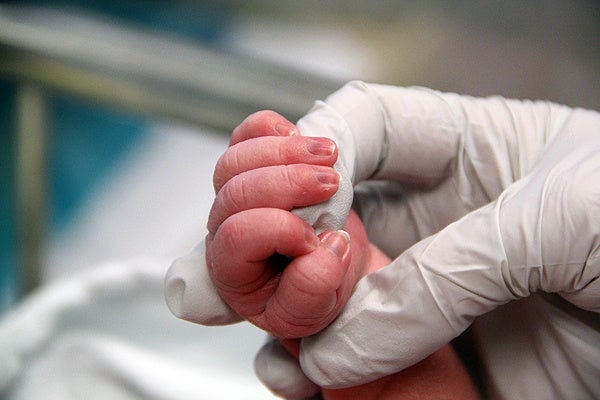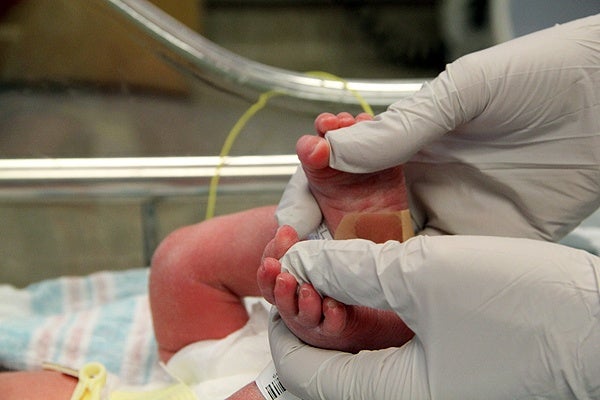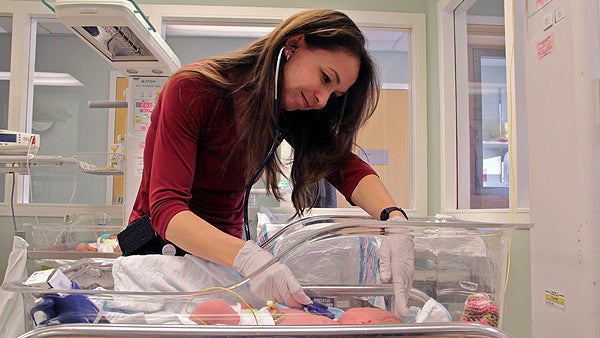How residency changes have affected health care
Listen-

-

-

-

-

Dr. Kanani Titchen
Residency has been described as the ultimate, the final trial in medical training. Ask older docs to recall their residency training, and you’ll hear stories about working around the clock, and sleeping in the hospital for weeks at a time.
Residency isn’t quite as grueling anymore. The rules were changed, first in 2003, and then again in 2011, capping work hours per week at 80, and limiting the amount of hours per hospital shift.
This came as part of a broader effort to reduce medical errors. The thinking was that exhausted, overworked and comparatively inexperienced doctors were more likely to make mistakes. Some doctors worry about the changes, fearing that today’s residents are not getting enough training.
Dr. David Paskin, who oversees residency training at Jefferson University Hospital says that when the Accreditation Council for Graduate Medical Education came out with the new guidelines, they were not popular.
‘Only’ 80 hours per week
“No one bought it; no one wanted it,” Paskin said. “Everyone thought it was absolutely inappropriate, and who were they to tell us what to do.”
But he had to implement the changes, and eventually became a believer.
He said he went from telling residents: “If you don’t work 900 hours a week, you are not doing your job” to saying: “You’ve got to let these residents go home.”
How are today’s residents experiencing their training? Do they feel ready and prepared? Dr. Ellen Plumb and Dr. Kanani Titchen are both residents at Jefferson.
Plumb is in the department of family community medicine at Jefferson; Titchen is in her first year of residency in pediatrics.
Still a rite of passage
They agree that residency remains a rite of passage, a trial.
“That period of your life where you are doing your residency training is extraordinarily intense,” Plumb said.
“I think the biggest adjustment for me was realizing that I am no longer the ‘medical school student,’” Titchen said. “I am no longer the bottom of the totem pole, and when I walk into a room and the nurses say: ‘Doctor this patient is in crisis. What do you want to do?’ they’re talking to me.”
And, work restrictions or not, they both feel that they are still working plenty of hours.
“When you think about, it is still pretty ludicrous that our restriction is that we can work twice as much as a “normal” 9-to-5 job,” Titchen said. “So I think an 80-hour restriction on the work week is a positive. Although the 80 hours only includes the scheduled patient time. There is a lot of time spent doing charting, documenting things, research.”
Ellen Plumb adds that longer hours don’t mean that more learning takes place – she says after a 24 hour shift, she was too tired to take in any knowledge.
“I was exhausted and so it was much harder to think. I was a little bit clumsy after 24 hours. I would notice that walking around the hospital, I felt a little off.”
Both say they feel they will be fully prepared for their next assignment, once residency is over, and that the work limitations allow them to study, rest, and live a little bit outside of work.
Are doctors as prepared?
Dr. David Paskin is not entirely convinced. He buys into capping the total hours of work each week at 80, but he’s not happy about the restrictions that limit the consecutive hours a resident can be in the hospital to 16 in the first year, and 24 in the subsequent years.
“We may have swung a little too far to the soft side,” said Paskin, “but the exposure side may not be enough for the resident to really get a full flavor of what it is like to take care of patients with a continuity of an illness in a hospital.”
Paskin says maybe it’s time to change the rules again. “It’s our job as the educators is to try to figure out what’s good and what’s not good” he said. He says hospitals have to put together programs which benefit patients, and benefit residents, but don’t deprive them of important opportunities for training.
“We can’t send residents out there, supposedly fully trained, taking care of patients when they’re really not.”
Paskin admits he is concerned. “Sure, I am because, guess what, I am going to be one of those patients.”
WHYY is your source for fact-based, in-depth journalism and information. As a nonprofit organization, we rely on financial support from readers like you. Please give today.




